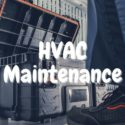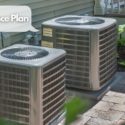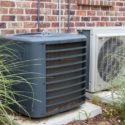for Lascko Services
Frequently Asked Questions
Q: Do I Have to Hire a Professional Plumber for Drain Repairs?
Always call in a certified plumber for serious drain issues, plumbing repairs and replacements. Some plumbing problems look like a quick fix, but even the avid DIYer may end up doing more harm than good. If you have any doubts about how to proceed with a plumbing issue, seek professional help. Using improper equipment or even proper equipment without the technical know-how can exacerbate a minor blockage into a damaged or broken drain system.
Q: How Often Should You Clean Your Sewer Lines?
If you have an older home, an immediate sewer line cleaning will likely benefit you. However, a good general rule is to have your sewer lines cleaned out every year or so. Bear in mind that this is a general rule, and you’ll want to schedule sewer line cleaning if you experience warning signs of clogged drains. Similarly, if you’ve been experiencing frequent problems with your sewer line, it’s recommended to schedule a video inspection. Plumbing issues to troubleshoot before calling a plumber:
- Clogged drains: Use a drain snake or wire hanger to break up or fish out common clogs. Be sure to run water at the same time to flush the blockage down the pipe. If that doesn’t work, try pouring a pot of boiling water down the line. A plunger can also come in handy when dealing with clogs. Just fill the tub or sink with water and use the plunger like you would in a toilet.
- Burst pipes: If you’re dealing with a burst pipe, consider using a pipe repair clamp as a temporary solution. You can either clamp it over the burst area or screw it on. Alternatively, try applying self-fusing tape. And if the damaged section is no longer tan 50mm, try burst pipe coupling. If all fails, call a plumber.
- Broken water heater: If you have a gas-powered water heater, start by checking the pilot lights. If the light is on, your unit won’t produce hot water. Check the temperature setting to ensure somebody didn’t turn it down accidentally. If you suspect mineral deposits could be the problem, drain the tank and flush out the sediment. If your tank is leaking, call a plumber, as chances are you may need to replace the unit.
Q: What Are Reasons for Heater/Furnace Issues and When Should I Get a Repair or Replacement?
Your heater/furnace can develop issues for various reasons, including:
- Dirty air filters
- Improper thermostat settings
- A yellow pilot light
- Worn out mechanical components
- Strange noises
- Blower cycling
- Old age
- Need for frequent repairs
Q: How Long Will a Ductless AC System Last?
The lifespan of your ductless AC, as with traditional systems, will depend on factors such as whether you’ve kept up with regular maintenance and how heavily you use your system. That said, a well-maintained ductless system should last about 20 years.
Q: What Is the Difference Between Automatic Standby and Portable Generator Systems?
The main difference has to do with how the steps you need to take to have power flowing into your premises in the event of a power outage. A portable system requires you to take it outside and start it up before hooking it up to a power inlet box. You must then switch the power coming into your house from the main line to the generator.
On the other hand, automatic standby generators turn themselves on and off automatically whenever there’s a power outage.
Q: What Size Generator Do I Need for My Home or Business?
Sizing your generator to fit your home or business requires you to determine your backup power needs. That means deciding what items are crucial to you in a power outage. Another thing to consider is the startup wattage of your appliances. Appliances such as pumps need more power at start-up but less to continue functioning. Ultimately, you need to calculate how much energy is required to power all the devices you’ll be using in an outage.
The best way to correctly size a generator for your home is to seek professional help. Our experts can provide a detailed evaluation to find the best solution for your needs.
Have more plumbing and HVAC questions? Lascko Services has all the answers. Call us at 231-725-2777 or contact us online to speak to our experts and schedule service. We are proud to service Muskegon, MI and surrounding areas.







